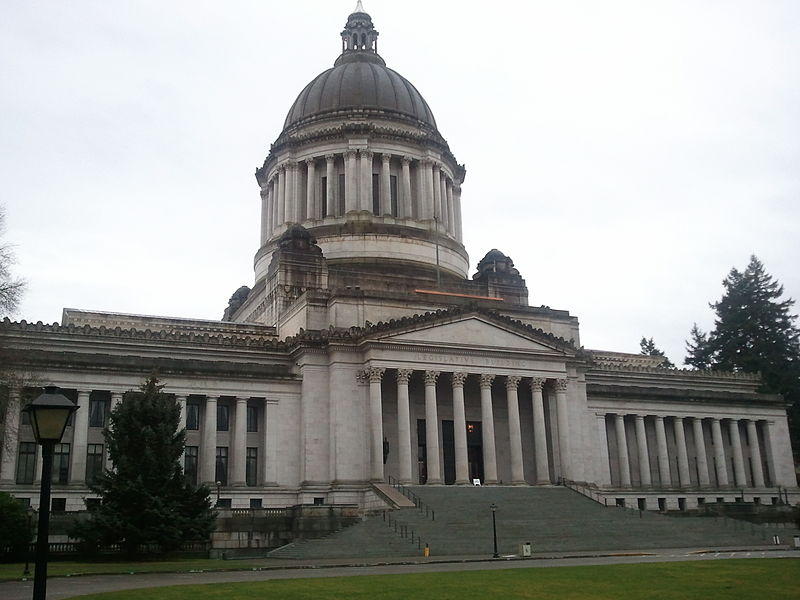
Rural Washington Counties Seek More State Money With Tax Revenue Hard To Come By
Listen
County governments are pushing back against Washington state over who should pay for certain services. The counties are upset the state has imposed a number of requirements on county government without additional funding.
Lincoln County, population 10,326, east of the Cascades is one example of a place grappling with rising costs.
“Out here we don’t have a Walmart or a Costco, so our sales tax is very, very limited,” County Commissioner Scott Hutsell said.
He’s a third-generation county resident in one of the least populous counties in the state.
“A lot of farming, flat land, dry land, wheat farming,” Hutsell said.
Hutsell said the law limits how much they can increase property tax. That, along with sales taxes, are the lifeblood of county government.
At the same time, the county is dealing with new requirements imposed by the state. A law that went into effect in 2017 required counties to provide more ballot drop boxes, but did not include money to pay for them.
Washington State Association of Counties Executive Director Eric Johnson said installing the ballot boxes cost $1.2 million.
And Johnson said they’re just one example of services counties have to pay for.
“We conducted all the elections on behalf of the state of Washington, we assess property tax on behalf of the state of Washington, we run the entire trial court on behalf of the state of Washington, from prosecution to public defense to the first initial incarceration in a county jail,” he said.
A state Supreme Court decision known as the Hirst decision made counties responsible for assessing water rights in new development projects. Counties say it’s a complicated and sensitive process that consumes resources.
And, court costs for people who can’t afford lawyers—such as interpreters, investigators and public defenders—are also going up.
Johnson said the state Legislature should help counties pay.
“This is an area where the state should step up to their responsibility therefore relieving those growth costs to county governments,” he said.
Initiative 747, which was passed in 2001, overturned and then reinstated in 2007, capped the amount county governments could increase property taxes to 1 percent each year, unless otherwise approved by voters. Counties are advocating for a tax cap that is linked to population and inflation growth instead.
State Rep. Ed Orcutt, R-Kalama, stands by the cap on property taxes that can be imposed by county governments.
“If it’s not enough, they can go to the voters, and if they can make the case to the voters then they can get more than 1 percent,” he said.
This session, Orcutt expects the legislature to consider funding to support legal defense of indigent people in the court system.
“There will probably be a couple of different ideas that will be floated out there to try and do something to help with indigent defense,” he said.
The Association of Counties will push its message in the upcoming legislative session and is considering legal action in the new year. Washington law prohibits the state from imposing new programs on counties without properly reimbursing them.
Related Stories:

Unpacked: Giving spiritual meaning to food during Lent
For Lent this year, the Rev. Rene’ Devantier of Spokane’s Fowler United Methodist Church uses real food and drink elements. (Credit: Cody Wendt / FāVS News) Listen (Runtime 1:47) Read

United Farms Workers call for boycott of Windmill Farms products at Tacoma rally
People traveled from across Washington state to rally outside of a Tacoma Safeway store in support of farm workers Monday afternoon.
The United Farm Workers and their supporters are calling on Windmill Farms in Sunnyside to recognize the unionization efforts and give workers a contract. The union said workers have been trying to get recognition for two years.

Flatt named in 2025 WSU Tri-Cities Women of Distinction class
Courtney Flatt, Northwest Public Broadcasting’s senior environment and energy correspondent. (Credit: Washington State University Tri-Cities) Read Courtney Flatt, Northwest Public Broadcasting’s senior environment and energy correspondent, was named a Woman












